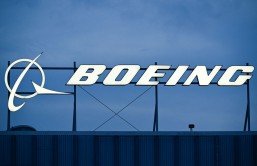Apple, one of the largest corporations in the world, have spread their operations in a range of geographies over the past decade or so as they looked to cash in tax breaks offered by different countries and one such operation was in Ireland. However, according to a recent report on Reuters, that cosy structure could be coming to an end as the European Commission is all set to rules against the structure in place at the moment and according to sources, the payout in back taxes could be as much as 1 billion.
According to the report on Reuters, "Commissioner Margrethe Vestager will hold a news conference on an antitrust case at noon (1000 GMT) in Brussels. Though the subject of the case was not given, she was expected to detail her verdict on why a deal that encouraged the U.S. tech giant to route vast profits through Ireland had breached EU state aid laws barring governments giving some firms unfair advantages. The ruling is likely to anger Washington, which has accused Brussels of campaigning against U.S. corporate success stories.
The European Commission accused Ireland in 2014 of dodging international tax rules by letting Apple shelter profits worth tens of billions of dollars from tax collectors in return for maintaining jobs. Apple and Ireland rejected the accusation; both have said they will appeal any adverse ruling"
The report further added that the calculations will be up to the Irish authorities but the total back taxes could be as much as around $1 billion. "The source said the Commission will recommend a figure in back taxes that it expects to be collected, but it will be up to Irish authorities to calculate exactly what is owed. A bill in excess of 1 billion euros ($1.12 billion) would be far more than the 30 million euros each the European Commission previously ordered Dutch authorities to recover from U.S. coffee chain Starbucks (SBUX.O) and Luxembourg from Fiat Chrysler (FCHA.MI) for their tax deals.
Both companies and countries have appealed those decisions. When it opened the Apple investigation in 2014, the Commission told the Irish government that tax rulings it agreed in 1991 and 2007 with the iPhone maker amounted to state aid and might have broken EU laws."








